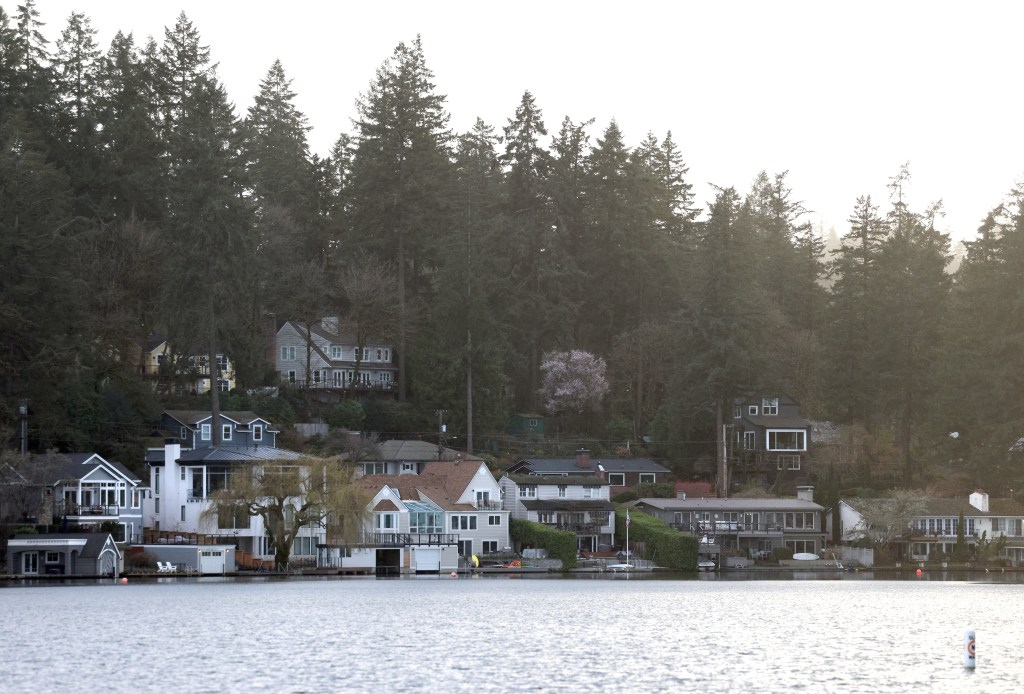Clackamas County judge says city’s rules preventing access to Oswego Lake are unlawful
Published 9:20 am Wednesday, November 13, 2024

- This is a view of Oswego Lake. (Staff file photo)
The city of Lake Oswego must allow public access to Oswego Lake, according to a ruling by Clackamas County Circuit Court Judge Kathie Steele released Wednesday, Nov. 13.
The judge’s decision comes months after an advisory jury determined that there is no justification for the city to continue preventing access to the water body from Millennium Plaza Park, while there are a couple legitimate reasons for preventing access at the city’s two other properties near the lake, Sundeleaf Plaza and Headlee Walkway. A previous ruling in the case determined that the waters of the lake are public, while Steele’s decision settled the second matter of the circuit court case, which examined whether the city’s restrictions are reasonable and therefore lawful. She said the city’s rules are not lawful.
“The City needs the opportunity or chance to fix the public access. Perhaps the timing of this opinion provides the opportunity to do so. Clearly the City may not violate the public trust doctrine and shall correct the violation,” Steele wrote. “The Court has the authority, based on the evidence and jury verdict, to tell the City to take down the ‘No Access’ sign and remove the restrictions.”
Trending
The case dates back to 2012 and was heard at the Oregon Court of Appeals and Oregon Supreme Court before being remanded back to circuit court. Currently, Lake Corporation shareholders and easement holders have access to the lake and there is limited access for residents within Lake Oswego city limits, but there are no places where the public at large can enter the lake.
In her opinion, Steele mentioned discriminatory laws that have since been repealed. Specifically she cited deeds along the lake that prevented minorities from owning property there, as well as laws preventing women from being able to independently open a bank account and the inability for same-gender couples to marry.
“The issue before the court here is, under current laws, regulations, and rules, has life changed enough to affect how we treat and protect the public’s interest in Oswego Lake,” she wrote.
Steele noted that a jurisdiction must have objectively reasonable reasons for barring access to a public waterway. The advisory jury issued its stances on whether the city’s justifications for preventing access — such as risk of invasive species, water quality and cost — are reasonable, finding they are not. Steele made those recommendations binding in her opinion.
“Clearly, the Defendants did not present evidence sufficient to find that Millennium Park was affected by potential legal liability risk to the City, the risk of invasive species, water quality, safety of lake users, and the design and construction of the park such that restricting legal access to Lakewood Bay was required,” Steele wrote.
Steele added that reasonable steps can be made to lessen the supposed risk of a lake entrance at the park, such as constructing steps to avoid a railroad easement, making the entrance ADA compliant and removing vegetation as well as implementing reasonable use restrictions.
Trending
“Managing the risk is reasonable in Oswego Lake. Banning the public outright is unreasonable,” Steele wrote.
Steele also opined that Headlee “would seem to be perfect” for a boat launch but that there may be legal risk to implementing lake access there due to ownership and lease agreements.
When asked to comment on the ruling, plaintiff Todd Prager said: “We are really happy with the decision. I think the judge had a well-reasoned opinion and we look forward to the next steps. We are also hoping the city of Lake Oswego will begin to change course and work with us to provide reasonable access to the lake rather than continue fighting this unnecessarily.”
The legal battle may be far from over, however, as the Lake Corporation — an intervenor-defendant in the case — plans to appeal the ruling to higher courts.
“The Court’s opinion makes no secret of the fact that it is trying to change decades of established law in Oregon. We think that is wrong, and we hope that the Oregon Court of Appeals and Supreme Court will respect local governments and the long recognized property rights of Oregonians. In the meantime, we remain willing to work with all interested parties to try to find a solution that works for everyone,” the Lake Corporation Board of Directors said in a statement.
Prior to the ruling, the city’s lawyers had asked the court not to issue an order requiring that it remove barriers and that it instead have latitude to conduct its own process.
“In effect, Plaintiffs’ complaint asks the Court to act as Czar over the City’s waterfront parks, demanding immediate removal of fences and vegetation, permanent planning mandates, and other similar impositions on City park management,” the city’s attorneys wrote in a brief earlier this year.
Nadia Dahab, a lawyer for the plaintiffs, said Steele’s ruling effectively amounted to an order to remove the “no access” sign at Millennium Plaza Park and other barriers, but recognized that the city may need some time to enact changes.
The city of Lake Oswego issued a statement Nov. 14 saying that it is reviewing the opinion with its legal team.
“The City of Lake Oswego appreciates the judiciary and the advisory jury dedicating resources to this important matter,” the statement reads.







